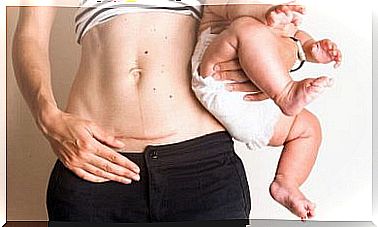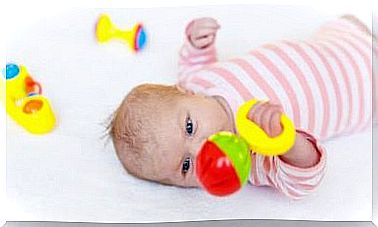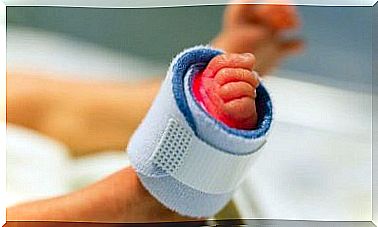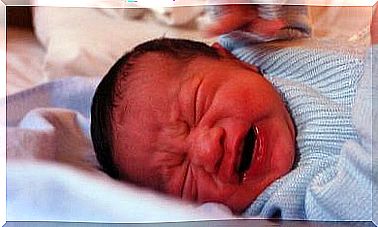The Effects Of Caffeine During Pregnancy

Caffeine is something that many people consume daily around the world. It is found in coffee but also chocolate, soft drinks and tea, for example. However, getting caffeine during pregnancy is a controversial topic. Here we will take a deeper look at this issue.
What is caffeine?
We talk about caffeine all the time, but do we really know what it is? Chemically, it is an alkaloid belonging to the methylxanthine group. In our bodies, caffeine in the central nervous system acts as a psychostimulant.
It is a competitive antagonist of the adenosine A1 and A2a receptors. These receptors are responsible for inhibiting the release of many neurotransmitters in the nervous system. Therefore, a caffeine intake leads to the release of the same neurotransmitters. Among other things, this maximizes the effect that dopamine has on the body.
Caffeine is also considered to be addictive, given its energizing and stimulating properties. A large intake of caffeine means that you develop a certain tolerance. At the same time, a sudden pause in one’s caffeine habits can lead to abstinence.
Caffeine is also used for its pharmacological properties. In particular, caffeine contributes to the analgesic treatment of, for example, headaches. It is also part of the composition of many medicines for flu and migraines.

What are the properties of caffeine?
As I said, caffeine is a psychostimulant and psychoactive substance for our central nervous system. This means that it activates the brain, awakens it and keeps us awake. But that’s not all. Caffeine also has other effects on our bodies:
- Caffeine is an antioxidant and attacks free radicals.
- Increases arterial pressure.
- Increases heart rate.
- Has diuretic properties.
- Increases blood circulation.
- May give rise to some degree of dehydration.
- May cause headaches, but may also help relieve it.
- Improves breathing by strengthening the contractions of the diaphragm.
- Dilates the blood vessels (vasodilation).
The effects of caffeine during pregnancy
Occasionally, caffeine has been considered a risk factor for fertility, just like tobacco and other drugs. However, small doses do not pose a risk. However, it is important to avoid excessive intake if you want to get pregnant.

Moderate intake of caffeine during pregnancy has no harmful effects, but excessive amounts can reduce fetal growth and even lead to miscarriage.
Why is it like that? Caffeine passes the placenta to the fetus, which means that the amount of caffeine in the amniotic fluid and in the fetus’ blood is the same as in the pregnant woman’s blood.
In the placenta, there is no way to metabolize the caffeine that penetrates. At the same time, the fetus lacks the necessary enzymes in the liver to do so until the 8th month of pregnancy.
The properties of caffeine can cause the blood vessels in the uterus and in the fetus to constrict, which reduces the amount of blood that reaches the fetus. This means that the baby gets less oxygen and nutrients. Therefore, an increased intake of caffeine can affect the growth of the fetus.
Another more serious complication of caffeine during pregnancy is miscarriage, especially during the first trimester. An excess of caffeine can also lead to the development of pregnancy toxicosis and high blood pressure.
Arterial hypertension and heart rate are important to control during pregnancy. Therefore, it is important not to eat substances that can affect them. Failure to do so may have undesirable consequences, both for the pregnant woman and for the baby.
During breastfeeding, caffeine can also be passed from the mother to her baby through breast milk. Excessive caffeine intake by breastfeeding mothers can lead to changes in the baby’s sleep patterns and irritability. But moderate consumption does not involve any risk.
Conclusion
With all this said, there is still much we do not know about this subject. It is true that an excessive intake of caffeine during pregnancy is harmful to both mother and child, but moderate consumption is harmless and can even be beneficial.









